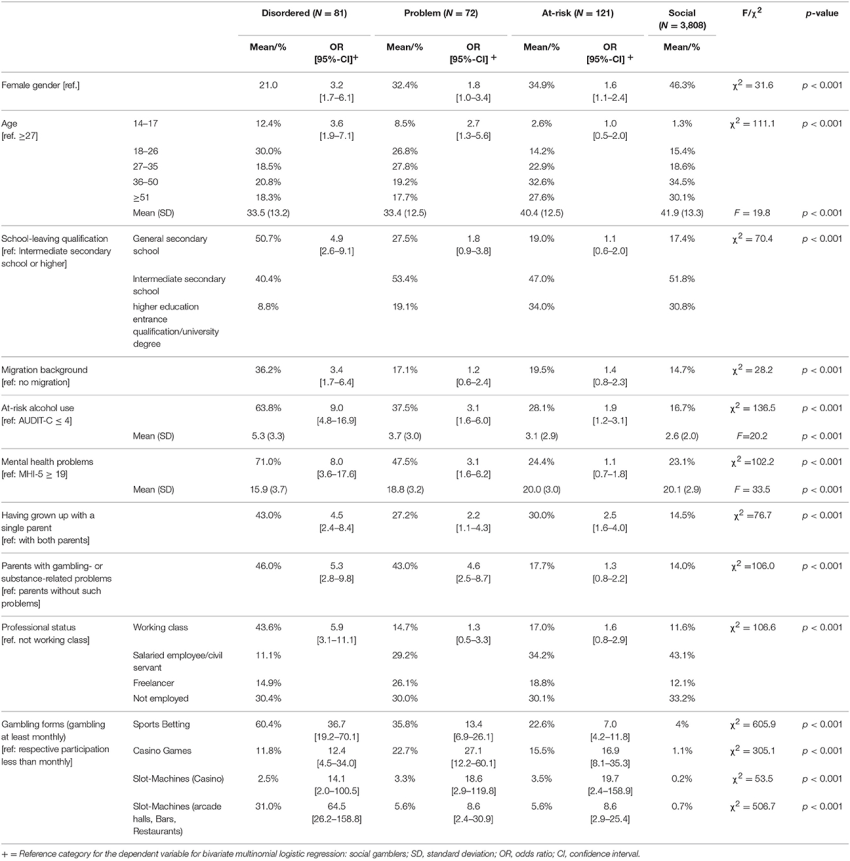Gambling odds and risk factors play a critical role in shaping the experiences of bettors and their relationship with gambling activities. As a thrilling pastime enjoyed by many, understanding the nuances of betting odds is vital not only for calculating potential payouts but also for navigating the inherent risks involved. With the phenomenon of gambling addiction on the rise, being aware of the risk factors for gambling is essential for ensuring that individuals engage in this entertainment responsibly. By demystifying concepts such as betting odds explained alongside the psychological implications of gambling, we can cultivate better gambling awareness and promote healthier practices within our communities. Dive into this exploration of gambling dynamics to better understand how to make informed choices while recognizing the potential pitfalls along the way.
When we talk about gambling and its associated complexities, it’s important to recognize the significance of odds and the various threats they pose to individuals. Often regarded as a form of entertainment, the landscape of betting incorporates a variety of parameters that influence both the experience and outcomes for gamblers. Concepts like wagering probabilities and the psychological elements linked to gambling behavior can create a multifaceted environment that is both captivating and risky. The undercurrents of gambling pressures and the potential for addiction require careful navigation, prompting discussions around responsible gaming strategies. By gaining insight into these elements, not only can we enhance our understanding of gambling, but also develop proactive measures to mitigate its adverse effects.
Examining Gambling Odds: A Path to Informed Betting Decisions
Understanding gambling odds is crucial for anyone looking to engage in betting, whether casually or seriously. Betting odds serve as the primary tool for evaluating potential returns on wagers. For instance, knowing the difference between fractional, decimal, and moneyline odds can significantly influence a bettor’s choices. Fractional odds, often used in the UK, help bettors see how much profit they can expect from their stake, while decimal odds provide a straightforward total return figure that includes the initial wager. Familiarity with these odds types can empower bettors, enhancing their strategies and decision-making processes while minimizing risks.
Moreover, grasping the underlying math behind betting odds directly relates to a bettor’s ability to assess risk versus reward. By understanding how odds reflect a team’s probability of winning or losing, bettors can make more informed decisions that factor in potential risks, leading to smarter betting practices. The landscape of betting can be daunting due to the complex nature of odds; however, through education and awareness of how these odds operate, bettors can navigate their options more effectively and gamble responsibly.
Understanding Gambling Risks: Identifying Key Factors
The complexity of gambling extends far beyond the thrill of the game, as understanding the risk factors involved is essential for anyone interested in this activity. Recent studies have revealed several demographic details that contribute to higher incidences of gambling disorders. For example, younger males are significantly at risk, especially those in single living situations. This demographic must recognize the potential harm that gambling can inflict, particularly in environments where gambling is normalized or accessible. This knowledge is a crucial aspect of gambling awareness that can lead to healthier habits.
Additionally, psychological factors play a critical role in the development of gambling disorders. Individuals suffering from mental health issues, such as anxiety or depression, may find gambling to be an unhealthy coping mechanism that exacerbates their condition. Environmental influences, including easy access to gambling opportunities and peer pressure, further complicate this issue. By understanding these risk factors, individuals can take proactive steps to mitigate the impact of gambling on their lives, leading to a more informed and responsible approach to gambling practices.
Frequently Asked Questions
What are the key risk factors for gambling addiction that players should be aware of?
Gambling addiction can be influenced by several risk factors including age, gender, and socioeconomic status. Research shows that younger males, particularly those who are single, are more prone to gambling disorders. Additionally, individuals from lower socioeconomic backgrounds often report higher tendencies towards problematic gambling behaviors. Psychological factors such as mental health issues, including depression and anxiety, also significantly exacerbate these risks. Being aware of these risk factors can help individuals engage in responsible gambling and seek help when necessary.
How can understanding betting odds enhance awareness of gambling risk factors?
Understanding betting odds is crucial for enhancing gambling awareness, as it directly impacts the perceived risk versus reward of wagering. Each type of betting odds—fractional, decimal, and moneyline—provides valuable insights into potential returns and the nature of the bets being placed. This knowledge can help gamblers identify when they are taking excessive risks and may be at higher risk of developing gambling disorders. By grasping these concepts, individuals can make informed decisions that promote safer gambling habits and reduce the likelihood of addiction.
| Type of Betting Odds | Description | Example |
|---|---|---|
| Fractional Odds | Shows profit relative to stake | 5/1 means £5 profit for every £1 wagered |
| Decimal Odds | Represents total returns per unit wagered | 6.00 means £6 total return for £1 bet |
| Moneyline Odds | Denotes profit on positive or negative values | +200 means £200 profit on a £100 wager |
Summary
Gambling odds and risk factors are crucial elements for anyone involved in gambling activities. Understanding different types of betting odds can enhance your ability to make profitable bets while being aware of the associated risk factors can protect you from developing gambling disorders. With various betting strategies like fractional, decimal, and moneyline odds at your disposal, you can strategically approach your wagers. Simultaneously, recognizing that factors like age, socioeconomic status, and psychological conditions can predispose individuals to gambling issues is vital. Therefore, prioritizing your education about gambling odds and risk factors contributes to safe and informed gambling practices. If you or someone you know may be struggling, seeking help from professional resources is always a prudent step.
